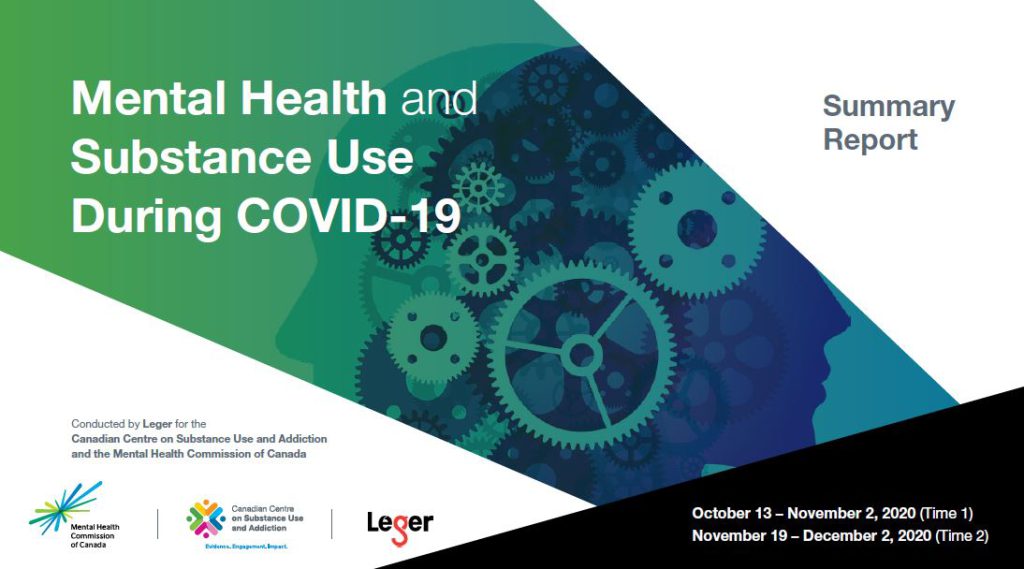COVID-19-related stresses are disproportionately impacting people with a history of mental health or substance use concerns, according to a new Leger poll commissioned by the Mental Health Commission of Canada (MHCC) and the Canadian Centre on Substance Use and Addiction (CCSA).
Context
The COVID-19 pandemic has increased stress across the population on many fronts. Mental health impacts are increasingly clear, including symptoms of anxiety, depression and suicidal ideation. Alcohol and cannabis use have also gone up. It is well-known that mental health and substance use are intimately connected. Yet, this intersection has not received a great deal of attention during the COVID-19 pandemic.
Accordingly, the Mental Health Commission of Canada (MHCC) and the Canadian Centre on Substance Use and Addiction (CCSA) have collaborated in an on-going polling initiative. This report, which is the first in a series, presents data collected during two timepoints:
- Time 1 (T1): October 13 to November 2, 2020
- Time 2 (T2): November 19 to December 2, 2020
Objectives
The objectives of this project are to:
- Monitor the ongoing impacts of the COVID-19 pandemic on mental health and substance use
- Inform the development of resources to address the mental health and substance use needs of Canadians
- Inform decisions and policies to facilitate greater availability of, and accessibility to, mental health and substance use services during a public health crisis
Methodology
- Residents of Canada, aged 16 and older.
- Survey data was collected at two time periods: between October 13 and November 2, 2020 (Time 1: T1), and between November 19 and December 2, 2020 (Time 2: T2).
- A total of n=2502 (T1) and n=1507 (T2) online surveys were conducted via Leger’s online panel.
- As a non-random online survey, a margin of error is technically not reported.
- If the data were collected through a random sample, the margin of error for T1 would be Canada (n=2502) ±2.0%, 19 times out of 20, and for T2 would be Canada (n=1507) ±2.5%, 19 times out of 20.
- While the sample has been weighted according to age, gender and region using data from the 2016 census, it is not fully representative of the Canadian population and caution should be exercised when comparing results with other surveys.
Key Facts
- Respondents’ top stressors were their financial situation (14%), social isolation (12%) and the health of family members (11%).
- One in three who use alcohol reported increased use, while one in five reported high-risk use.
- Two in five respondents who consume cannabis reported increased consumption and problematic use.
- One out of two respondents with current mental health symptoms who consume cannabis reported increased consumption.
- Moderate and severe anxiety symptoms were highest among respondents with a history of substance use or mental health disorders.

